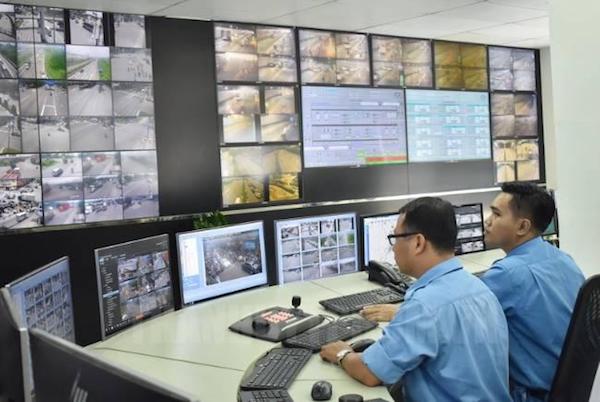Digitalization, green growth remain key priorities for Vietnam
Pursuing green growth will help Vietnam find new driving forces for sustainable development and enhance resilience against external shocks.
Digitalization and its transformation into a green economy are top priorities for Vietnam to gain higher labor productivity in the future.
| Smart traffic management center in Ho Chi Minh City. File photo |
The combination of these two factors would help boost the country’s productivity by one to two percentage points, said World Bank Country Director for Vietnam Carolyn Turk at the Local Development Dialogue 2021 held today [July 13] in virtual format, which aims to find breakthroughs for development at provinces/cities in the 2021-2030 period.
Speaking at the dialogue, themed “Realizing development goals in a new normalcy,” Turk said, during the Covid-19 pandemic, Vietnam has accelerated digital transformation and IT application in various fields, especially in e-government and e-commerce, but she said more efforts are needed to continue the development in these two fields.
She noted Vietnam should look at the digitalization models in neighboring countries while expressing World Bank’s commitment to assisting Vietnam during this process.
On this issue, the Director of the Ho Chi Minh National Academy of Politics Nguyen Xuan Thang identified three factors for the digital transformation, including technological infrastructure, legal framework, and human resources.
“Active participation from each province/city is necessary to obtain all three factors to realize the country’s goal of promoting digital economy, government, and society as planned,” he noted.
Thang said a new normalcy situation would require quick adaptability to growing risks from the development process, including diseases and natural disasters.
“Green growth, therefore, should be pushed forward to create new driving forces for economic development and enhance its resilience against external shocks,” he added.
Result-based governance model
In addition to digitalization, Professor Tran Ngoc Anh from Indiana University (US) argued amid resource constraints and the Covid-19 pandemic, localities could still achieve their respective development goals by adopting a result-based governance model.
“The purpose of such model is to realize each goal by improving efficiency inside the organization and assessing the capabilities of each public staff to have benefit packages accordingly,” Anh said.
Anh expected this model to create a system with a high level of responsibilities and nurture creativity at the same time.
“Assessing a staff performance would be based on their efficiency in completing a task, therefore, leaders should also assign specific and concrete tasks at the beginning,” he continued.
Anh said provinces/cities should let the people and enterprises evaluate their performance to show the authorities’ determination in pursuing reform.
Director-General of the Administrative Procedures Control Agency under the Government Office Ngo Hai Phan said it is inevitable to set up a mechanism to ensure the efficient implementation of policies.
The Government Office and Ministry of Planning and Investment are developing 200 criteria for efficiency assessment at ministries and provinces/cities, he added.













